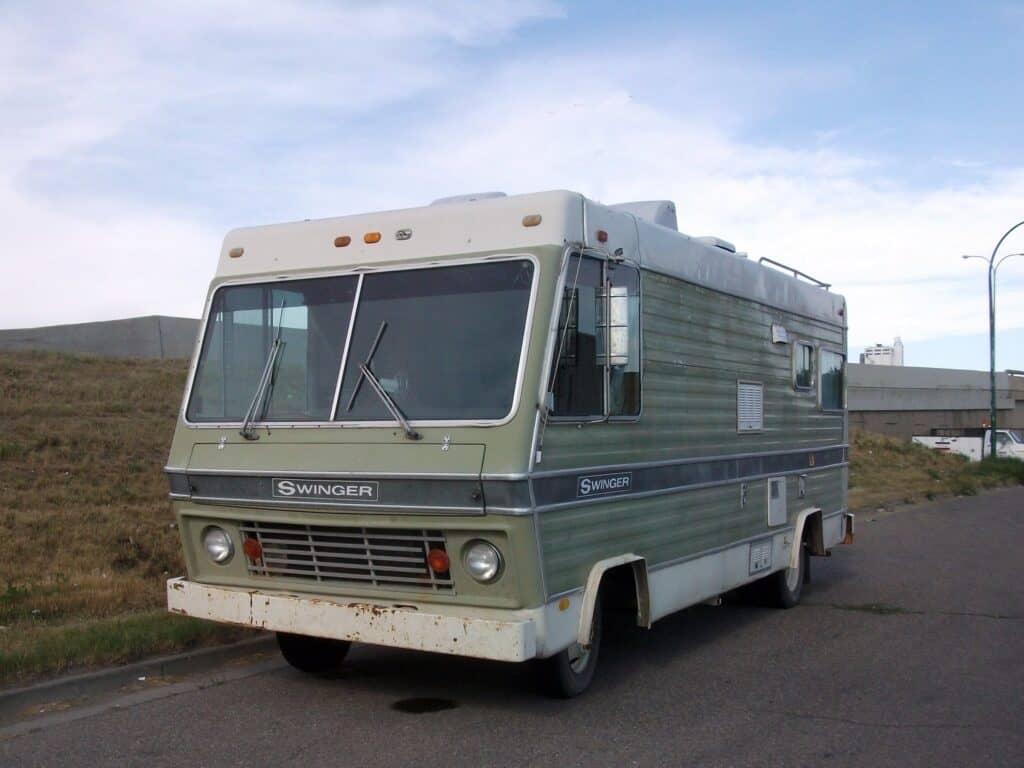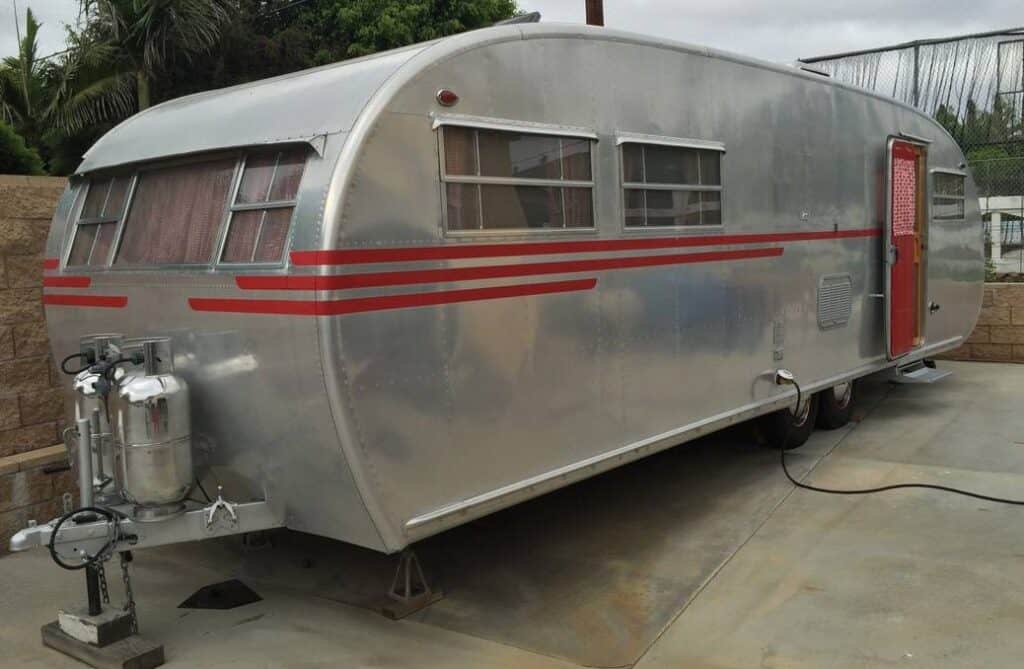People who have older RVs and have stayed at high-end RV parks may have run into the 10 year rule.
What is the 10 year rule? If RV park owners implement the 10-year rule, they don’t allow any RVs over 10 years old. There are quite a few RVers that feel this rule is discriminatory. Though it may be, it is legal.

Why does the 10 year rule exist?
The three main purposes of the rule are safety, aesthetics, and convenience. Every state has different regulations for RV parks to follow, and most of those laws are put in place for safety reasons. This is especially true for RV parks that allow long term stays of months at a time.
Safety
Older rigs may be prone to leaks from storage tanks. In the case of motorhomes, oil and other fluids can leak. Older rigs may also have a higher chance of having electrical issues that could create potential hazards to the park.
Instead of performing a safety inspection on all RVs entering the park, campground owners have chosen a cutoff RV age to limit the number of RVs that pose potential problems.
Aesthetics
Many parks that have a 10 year rule are large resort parks or exclusive/expensive parks. The large resort parks may simply have more than enough patrons and can be choosey as to which rigs they let in. The exclusive/expensive parks generally have a “look” they are trying to achieve.
As uppity as it sounds, the patrons staying at a $120+ a night resort don’t want to park their $200,000+ rig next to something off the set of National Lampoon’s Christmas Vacation.
Convenience
Just like older rigs are more likely to give RVers problems, they can also become a problem for RV park owners. Parks that have an inexpensive monthly option can attract rigs that are barely streetworthy.
If those RVs are let into the park, they can become less streetworthy as they sit on the site for months. The park owner may have to deal with the headache of getting the broken down RV off of their property, which can be time-consuming and costly.
The more likely scenario in the case of dilapidated RVs is dealing with rent delinquency. One might think a customer who doesn’t pay for their site can be easily asked to leave.
That is not the case everywhere. In some states, a tenant has to be delinquent for at least thirty days before the campground can begin the process of removing the RV owner. Put simply, the park owner assumes that if you can afford a newer rig, you are less likely to be delinquent on your rent.

What if your RV is over 10 years old?
If your RV is over 10 years old, is it time to panic? Not really. To be perfectly honest, the percentage of parks that have a 10 year rule is small.
Full-time RVers, Cherie Ve Ard & Chris Dunphy of technomadia.com, traveled in a 1961 vintage bus conversion for many years.
“There are well over 20,000 RV parking options out there, and only a tiny portion of them have rules like this. Public parks (such as state, county, and federal) don’t tend to have any rules about the age or type of RV,” they explained in a blog post.
Keep your RV well-maintained
The 10-year rule boils down to how old your RV looks externally. If the awning isn’t shredded, an A/C unit isn’t hanging out of a window, or the door isn’t a bare piece of plywood, you can get past the rule.
Some parks will allow you to send them a photo of your rig or take a look at it when you arrive. RV parks are businesses, after all. You can’t have a successful business if you turn all of your customers away.
Just show up
It’s a risk, but if you want or need to stay at a park with a 10 year rule, you can always just show up. This may not be a good idea if you want to stay long-term since the park may not have any monthly sites available.
If you are just staying a few nights, it isn’t uncommon. Many parks are very lenient on the rule for overnighters, and it is a little more difficult to turn you away when you are already there, provided your RV isn’t held together by duct tape.
Don’t worry too much
There is no reason to worry that you have to buy a new RV every 10 years. Many parks often use this rule as more of a screening device. If your older RV is in good condition, most of the time, the park will make an exception for you.
If your RV is really old and has been restored, the park may even consider it “vintage.” They will not only let you stay, but you may be asked a lot of questions about the restoration process.
Some believe the 10-year rule is not a good screening device and should therefore not be used. If you are among those that feel that way, there is a Facebook group called “My RV is too old for your park.” Members share photos of their older RVs and their thoughts on the 10-year rule.

Go public
Remember too that public campgrounds such as county, state, and national parks do not have or adhere to this rule at all. If it rolls and you can get it there, you can enjoy those campgrounds with no fear of chastisement.
Finding private and public campgrounds is easy using Campground Reviews, the most complete and trusted campground review site. The data from Campground Reviews is also available in RV Trip Wizard, the best RV trip planning tool around.
